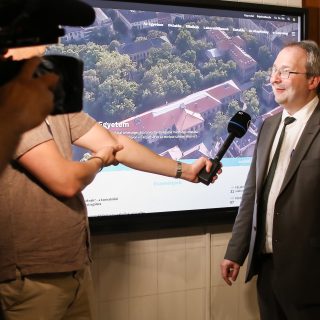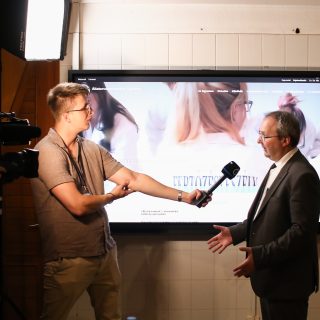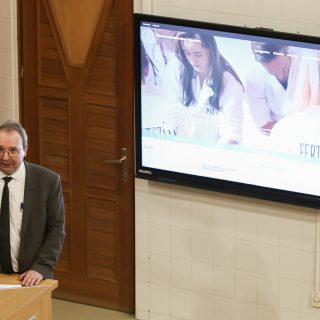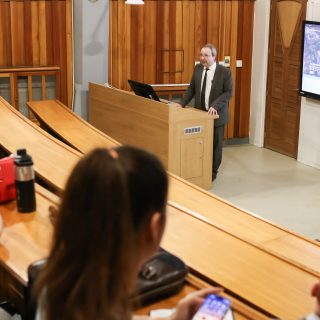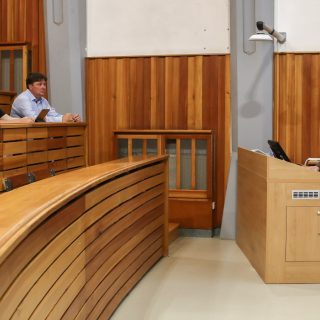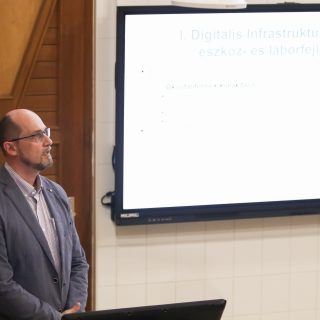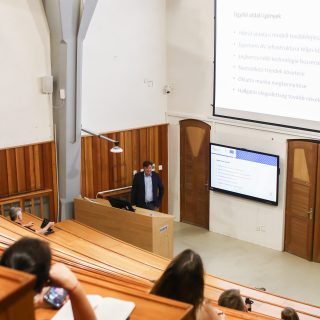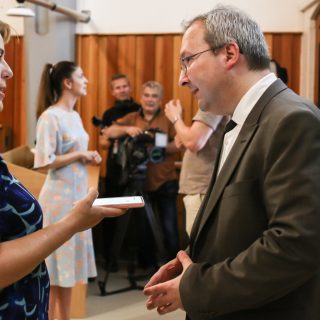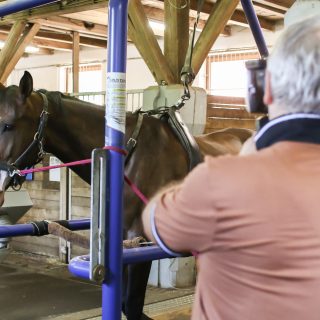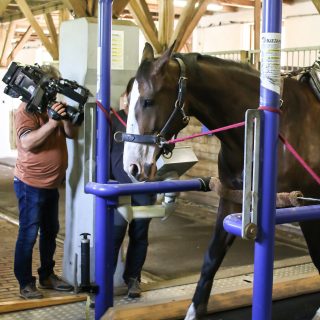The project titled “Development of practice-oriented higher education at the University of Veterinary Medicine Budapest” (code RRF-2.1.2-21-2022-00008) aims to establish a modern, complex digital infrastructure system using the latest audiovisual technologies across the university’s three campuses. The project, funded by 2.34 billion HUF in non-repayable European Union support, will develop “smart classrooms” over 15 months, installing 1,842 devices from 13 manufacturers into 45 presentation spaces.
By creating these “smart classrooms” and procuring thousands of digital devices, the University of Veterinary Medicine Budapest aims to simultaneously enhance the digital competencies of students and university staff and rejuvenate its traditionally high-quality in-person education with impressive and inspiring tools.
The acquired equipment includes 4K projectors, essential for the detailed presentation of anatomical diagrams and diagnostic images. Interactive displays allow instructors to annotate or draw directly on the screen, clarifying anatomical abnormalities or changes related to the study material. PTZ cameras and microphone systems will make it easier for the university’s predominantly international student body to join remotely and enable real-time involvement of foreign expert guest lecturers with excellent audio and video quality. A central signal management system will allow lecturers to switch seamlessly between different audiovisual sources, live-streaming a surgical procedure, and immediately switching to an educational video or presentation to explain what was seen. The system is user-friendly and intuitive, with many pre-programmed functions ensuring all devices operate according to the selected program.
Prof. Dr. László Ózsvári, vice-rector for education at the University of Veterinary Medicine Budapest, stated, “The introduction of new audiovisual technologies not only makes training processes more efficient but also allows our students to familiarize themselves with the most modern tools, thus developing an integrated approach in line with contemporary trends and preparing them for running a modern veterinary practice.” He added, “This technological infrastructure development aligns well with the institution’s long-term equipment procurement and educational development strategy, aiming not only to ease the work of educators but also to create a high-quality, interactive, and dynamic university learning environment in line with international trends, motivating students and fostering deeper understanding.”
Delta Systems Kft. won the European open tender for implementing the “smart classroom” development.
In addition to creating a digital infrastructure environment, the project will enhance the institution’s competitiveness and digital educational and service capacities through system developments supporting education and training to develop digital skills. This contributes to ensuring equal access to quality education. The project, running until October 31, 2025, is part of Hungary’s Recovery and Resilience Plan.

